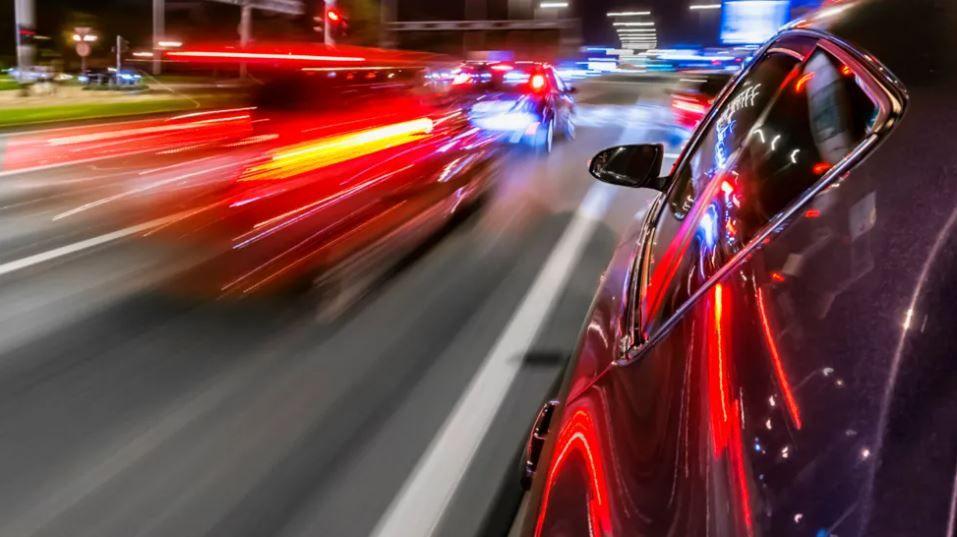No donuts or drifting: Police tackle car cruising
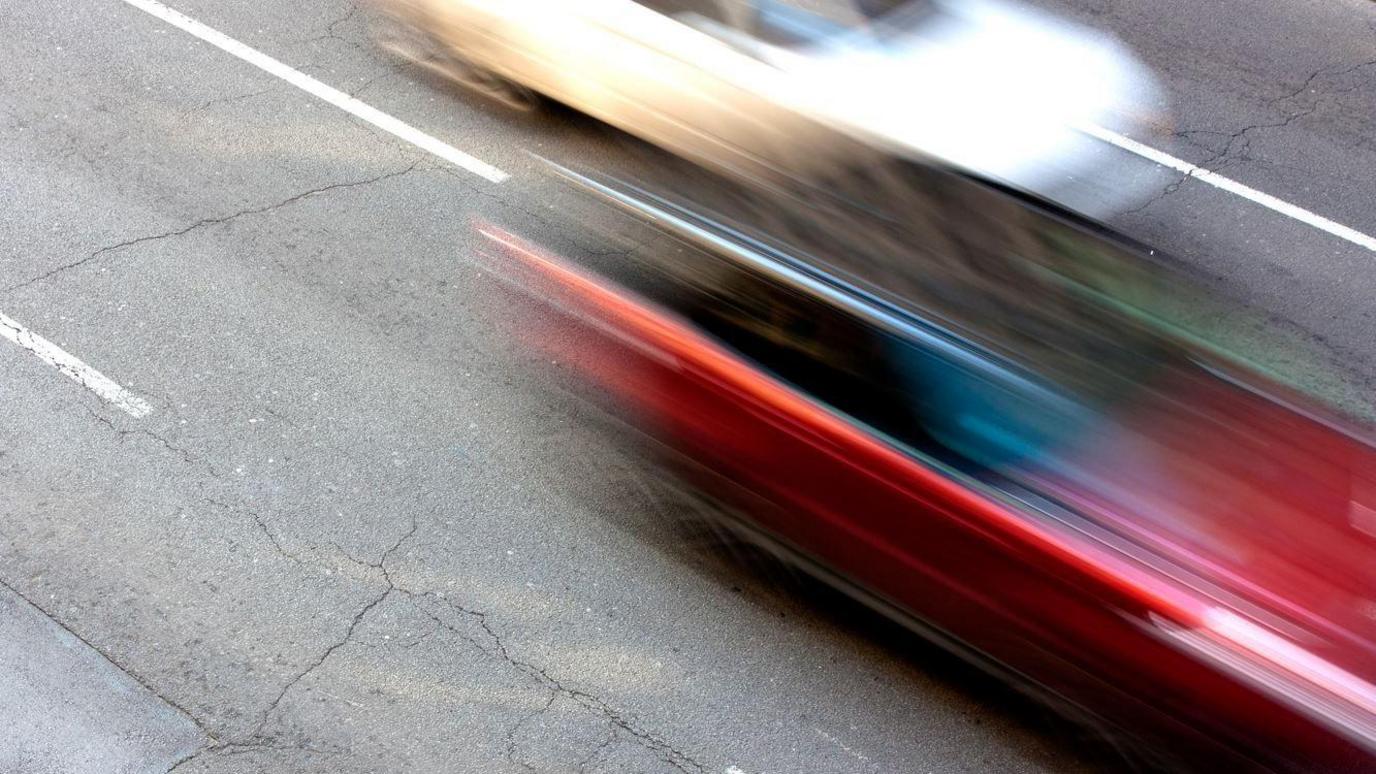
Car cruising is popular with men and women of all ages
- Published
It has been a landmark week for efforts to halt street races in the West Midlands.
The jailing of three people for organising so-called "festivals of dangerous driving" was hailed a "major victory" by West Midlands Police.
It was a first for the region where street racing, also known as car cruising, was banned after the deaths of two teenagers at an event.
The BBC looks at efforts to tackle it.
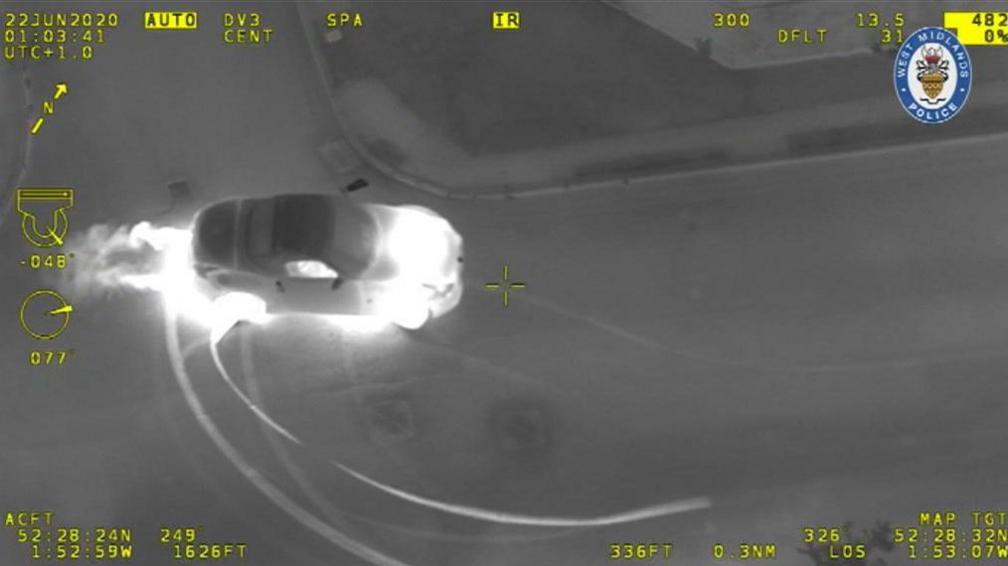
West Midlands Police have released videos showing cars drifting at speed on public roads
What is car cruising?
The term is used to describe both groups of vehicles driving in convoy, and performances of reckless driving or stunts.
But it can also apply to static meet-ups between car enthusiasts and other events permitted by police.
Vehicles might convene on public roads, empty car parks or in fields.
Gatherings become a problem when participants use roads as race tracks, obstruct other vehicles, make excessive noise revving engines or playing loud music, or perform stunts like donuts, drifting and burnouts.
Hundreds of residents living near hotspots have complained about the fear and nuisance it can bring.
While it has a reputation for "boy racers", police say car cruising attracts male and female enthusiasts of all ages.
In the past decade, illegal street races have soared in popularity across the UK and hundreds of spectators can line the streets to watch and film on mobile phones.
High Court judge Justice Julian Knowles said, external, when granting an injunction for Birmingham and the Black Country, that car cruising had become a euphemism for "organised dangerous driving".

Liberty Charris and Ben Corfield were killed while watching a car cruising event in Oldbury in 2022
Why was it banned?
Ben Corfield, 19, and 16-year-old Liberty Charris died in 2022 when they were hit by a car which ploughed into pedestrians watching a street racing meet in Oldbury.
Their deaths led authorities to seek an interim injunction forbidding car cruising in Birmingham and the Black Country, which was extended and strengthened for three years in February.
The ban means drivers, riders and passengers can no longer meet in groups of two or more to participate in racing, stunts or other types of dangerous driving between 15:00 and 07:00.
It also prevents organising or gathering to watch street racing, stunts or cruising, with police given power to arrest anyone in breach and penalties including fines, cars being seized and jail sentences.
Last Monday, 56-year-old Dhiya Al Maamoury admitted causing the deaths of the teenagers and seriously injuring two others. He is due to be sentenced later this year.
The same week, Birmingham Crown Court jailed organisers of illegal meet-ups Ahzi Nagmadin, 24 and Jessica Roberts, 30, for three years and Rashani Reid, 32, for four.
Det Con Mark Campbell said: "We are coming for anyone who is involved in organising these events and they too can expect lengthy prison terms."
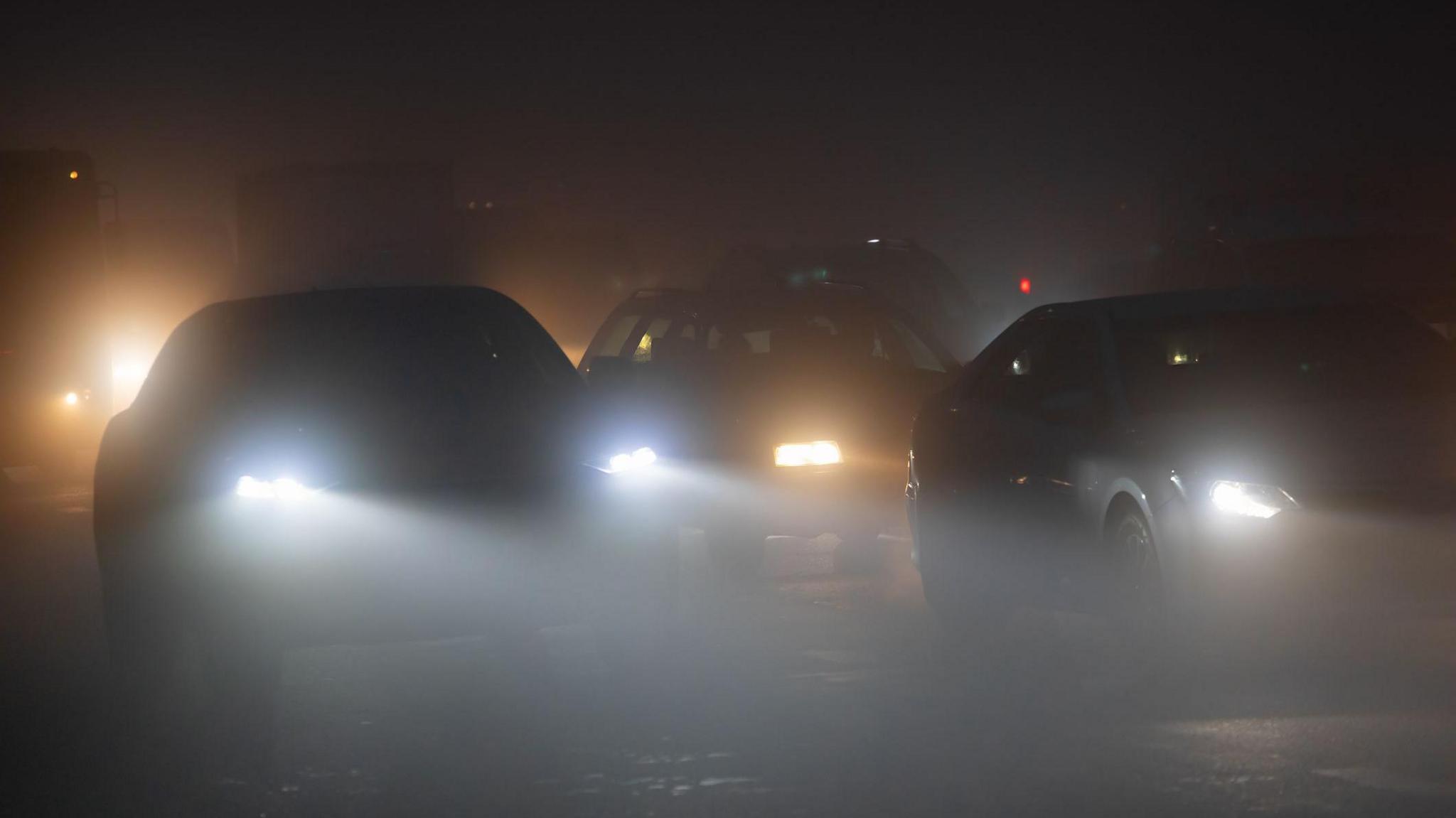
Residents say they live in fear of accidents caused by street racing
Is it banned everywhere in the West Midlands region?
In Birmingham and the Black Country, Justice Knowles acknowledged, external "nothing short of an injunction" would put the brakes on it.
"I am satisfied not only that those who engage in car cruising are deliberately, intentionally and flagrantly flouting the law, but that they will continue to do so unless and until effectively restrained by an injunction," he said.
Elsewhere, forces and councils collaborate to tailor approaches to local need.
In August, after scores of complaints, Stafford Borough Council approved the introduction of a Public Space Protection Order (PSPO) on a section of the A34.
Anyone promoting, participating in, or attending a car cruising event where prohibited activities take place could get a £100 Fixed Penalty Notice, or £1,000 fine if convicted.
Newcastle-under-Lyme Borough Council and Cannock Chase Council are also consulting on PSPOs, while South Staffordshire Council intends to introduce one next month.
In Coventry, more than 800 have signed a petition, external calling for a PSPO or injunction to stop "irresponsible and dangerous" street racing around Baginton.
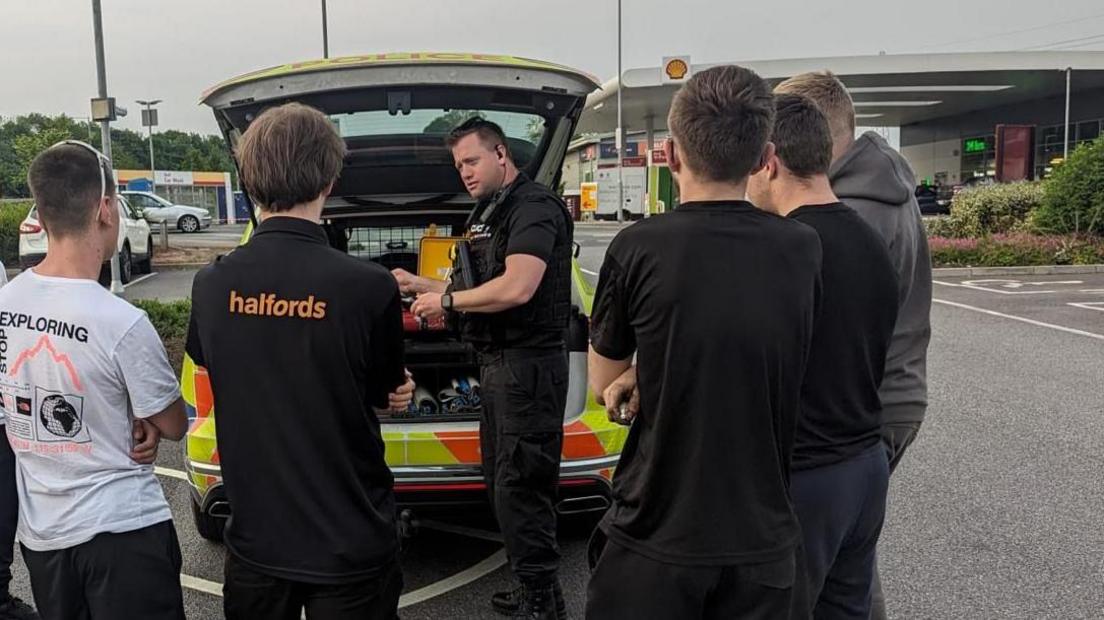
West Mercia Police road policing officer Scott Gee meets up with car enthusiasts to explain the impact of illegal car cruising
Initially the Birmingham and Black Country injunction displaced car cruisers over the border to north Worcestershire.
But West Mercia Police said activity decreased over the usually busy summer months, which it attributed partly to engaging with the car cruising community.
Over the past six months, road policing officer Scott Gee has been attending meets to chat to car lovers about indulging their passion without putting others at risk.
He described groups getting frustrated with those who turned up to do wheelspins and donuts.
"Most of the people that meet go for static reasons, they want to show their vehicles," he said. "But it's the small number of at-risk drivers which seem to ruin it for the rest."
Initially reluctant, the community has become more receptive.
"We've had really positive feedback," said Insp Stephanie Arrowsmith.
"We fully appreciate that this is people’s passion," she added. "We just want it to happen in a safe environment, in a safe way.
"Ultimately what we're trying to prevent is a fatality."
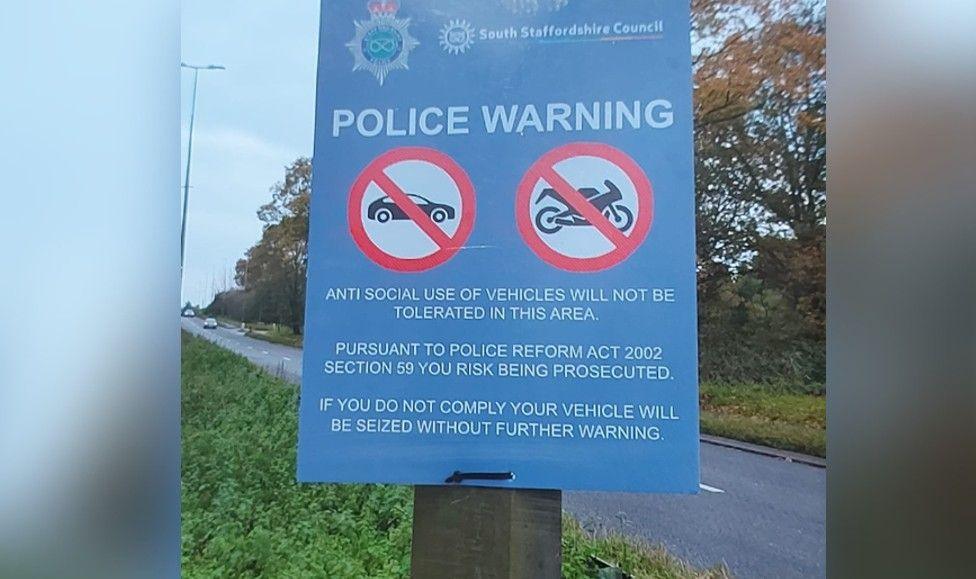
South Staffordshire Council installed warning signs on the A449 Stafford Road warning motorists against antisocial driving
Get in touch
Tell us which stories we should cover in Birmingham and the Black Country
Follow BBC Birmingham on BBC Sounds, Facebook, external, X, external and Instagram, external.
Related topics
- Published16 September 2024

- Published20 September 2024

- Published17 September 2024
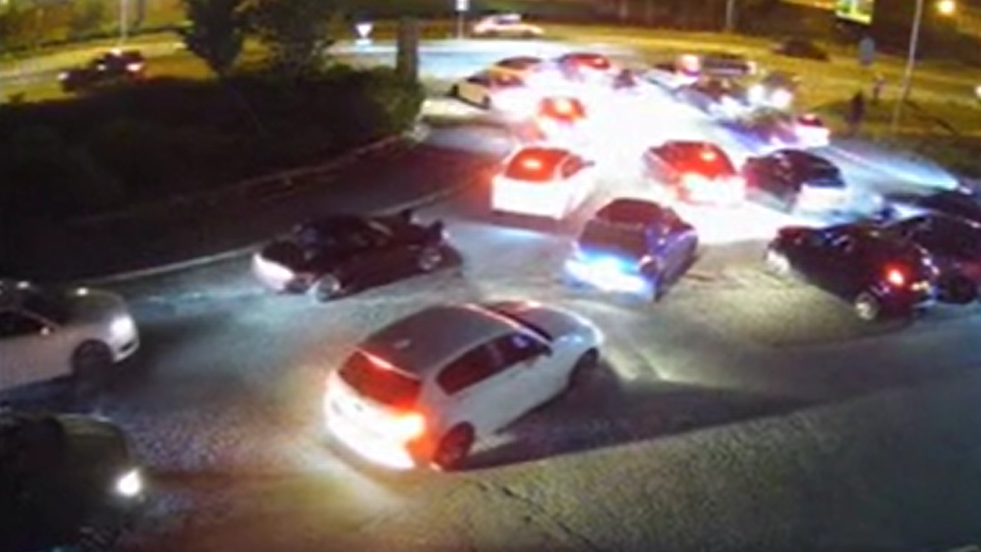
- Published11 June 2024

- Published28 February 2024
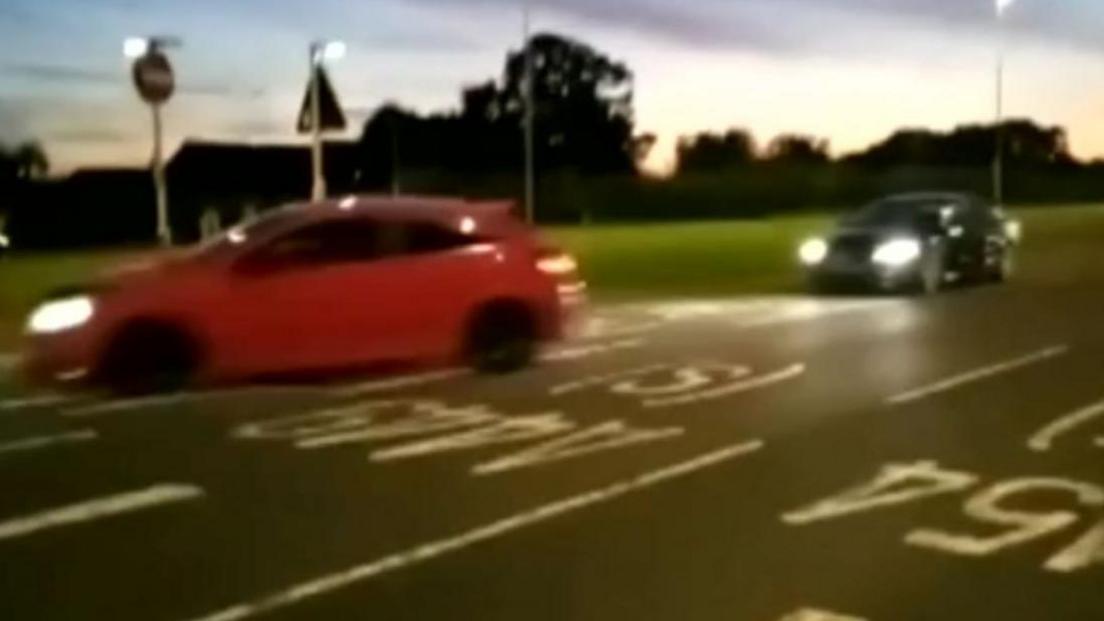
- Published4 February 2024

- Published3 June 2024
